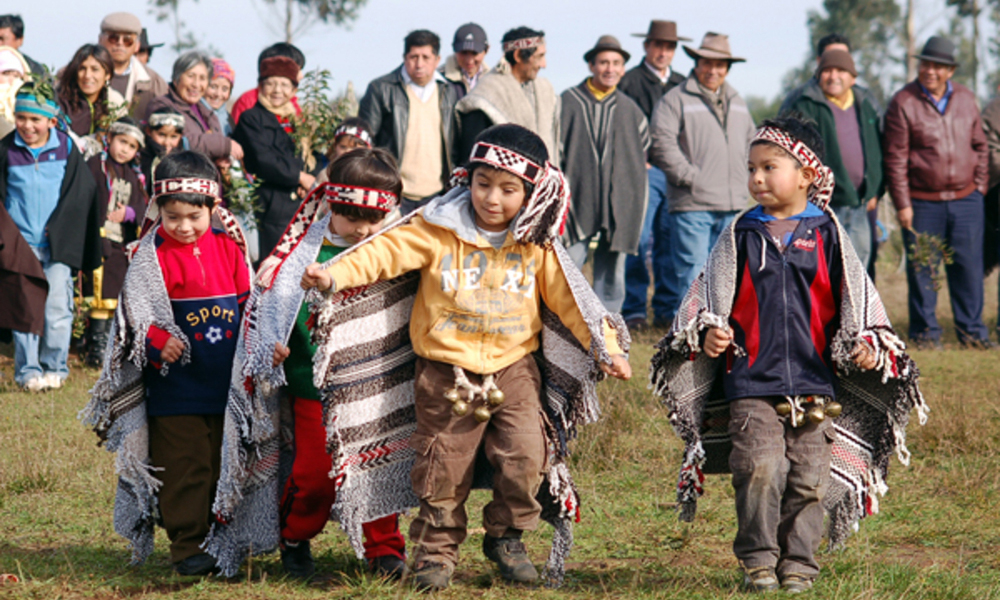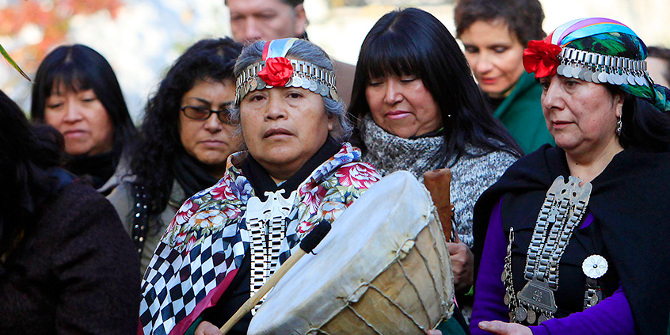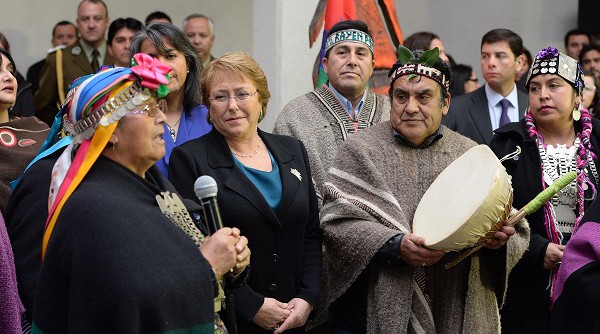Latin America
Related: About this forumThe Key Players in the Mapuche Conflict
by Francisco Alvarez
8 April, 2021

TIRÚA – The Mapuche conflict is only the tip of the iceberg for violence in southern Chile. Following the attack on reporters Iván Núñez and Esteban Sánchez, Mapuche leader Héctor Llaitul pointed to logging company Forestal Mininco as responsible for the incident. Lumber and real estate businesses, indigenous communities, and the Chilean state are just some of the players in this sprawling conflict.
The attack that left journalist Iván Núñez and cameraman Esteban Sánchez injured still hasn’t been attributed to anyone. Indigenous leader of the Coordinadora Arauco-Malleco (CAM), Héctor Llaitul, whom Núñez and Sánchez were going to interview, blames the attack on logging company Forestal Mininco, which is owned by multinational paper company CMPC. Political authorities, however, blame CAM. The complex situation in La Araucanía has several players with very different interests.
Chilean authorities constantly monitor indigenous organization CAM and its activities. Llaitul told Radio Universidad de Chile that Forestal Mininco is responsible for the attack on the press: “this is something that has been going on for a while now, Forestal Mininco’s direct intervention and meddling … by co-opting or buying [indigenous] leaders, and they have people working for them. In their lands and usurped territories, as well as internally in the communities.”
Aggression between Mapuche groups and the Chilean state dates back to the occupation of La Araucanía by the Chilean government in 1861. Since then, the state handed land to latifundistas (landowners) to build farms and hence incorporate the lands into Chilean territory. This led to the fragmentation of Mapuche communities, which at the same time were subject to the usurpation of their historical lands. During Pinochet’s dictatorship, 69,984 land grants were given to indigenous groups, but with the arrival of private companies, more problems arose, as developers hungry for arable land occupied indigenous lands, reigniting the historical Mapuche conflict.
More:
https://chiletoday.cl/the-key-players-in-the-mapuche-conflict/
~ ~ ~ ~ ~
Elizabeth Trovall
27 April 2017
For over 2,000 years the indigenous Mapuche people have occupied southern regions of South America as their ancestral land. Since the colonisation of the Americas, the Mapuche have been forced to resist European invasion of this territory through whatever means possible. As the Mapuche continue their struggle to preserve cultural traditions, it’s important to recognise and respect this indigenous group for their customs, history and resistance.
The name Mapuche encompasses several different indigenous groups inhabiting southern Chile and Argentina, each sharing the Mapudungun language, along with many customs and traditions. The heartland of the Mapuche rests between the Itata and Toltén rivers, in Chile’s south-central zone. Archaeologists have found evidence that suggests the Mapuche occupied this area early as 600 to 500 BC.
Spanish resistance
After the conquest of Peru, Spanish troops lead by Pedro de Valdivia headed south to Santiago and then southern Chile, where several cities were established within Mapuche territory. The Mapuche resisted the Spanish invasion, and conflicts between the two groups lasted over 350 years during the Arauco War. Although many Mapuche died from violence and disease, their attacks on Spanish forts and cities in southern Chile had some success. South-central Chile continued to belong largely to the Mapuche until 1882, during the Chilean occupation of the Araucanía. Now an independent nation, Chile was in the process of incorporating more territories, including the Araucanía region — land of the Mapuche. During this occupation, famine and disease hit the Mapuche people hard and the population dropped sharply. Many Mapuche were forced off their land. As adapting to Chilean society became a matter of life and death, the Mapuche were forced to incorporate themselves into this young South American nation.
Cultural practices
In the native language Mapudungun, ‘Mapuche’ translates to ‘people of the earth’. As their name would suggest, many Mapuche practices and beliefs are deeply connected to the natural world and the Mapuche’s ancestral land. Healing ceremonies and the use of Mapuche herbal medicine, for example, are two common cultural practices. The Mapuche shaman, the machi, occupies one of the most important roles in Mapuche society. The machi, who are usually female, perform ceremonies for warding off illness or evil and protecting the community and their harvest. Machis are knowledgeable about natural medicine and the different remedies their region’s biodiversity provides. The tradition of Mapuche medicine is one of the most visible aspects of the culture present in Chile today, used as both primary and alternative treatment to western medicine.
More:
https://theculturetrip.com/south-america/chile/articles/a-brief-history-of-chiles-indigenous-mapuche-people/





Mapuche with former Chilean President, Michelle Bachelet, whose father was tortured to
death by the Pinochet dictatorship, and who, with her mother, was tortured, herself.

abqtommy
(14,118 posts)has remained fairly flat for centuries.